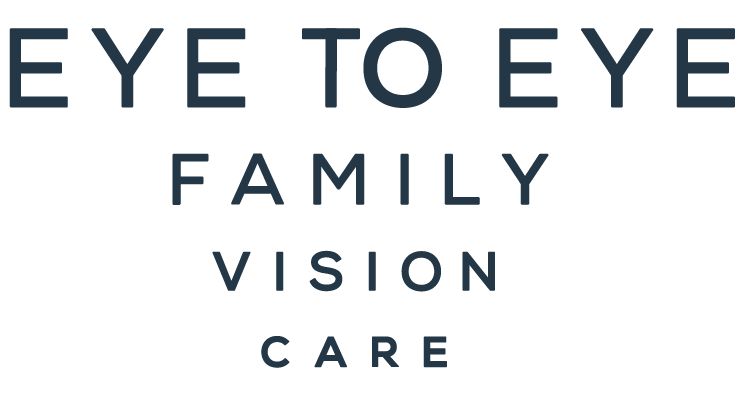5 Reasons To Avoid Rubbing Your Eyes

There is almost nothing more satisfying than a good, long, thorough eye rubbing when you have itchy or irritated eyes. However, rubbing your eyes is one of the worst things you can do. In most cases, it makes existing problems worse. In worst-case scenarios, eye rubbing causes more damage.
In most cases, excessive or habitual eye rubbing is caused by:
- Being overtired
- Dry eye
- Allergies
- Screen fatigue
- Contact lens irritation
- An incorrect lens prescription
- Infected or irritated eyelids
- An eye infection
Getting to the root of your eye rubbing is the best way to alleviate discomfort and minimize eye rubbing to prevent more serious damage.
Rubbing Your Eyes Makes Things Worse
Here are five ways rubbing your eyes can make things worse.
Corneal abrasion (scratches the surface of the eye)
The cornea is the transparent part of the eye that covers the iris and the pupil and allows light to enter the inside. As with all the eye tissue, the cornea is delicate. When you rub your eyes, any particulate matter (small particles) on the surface of the eye, or that are trapped between the inner eyelid and the eye’s surface are rubbed back and forth. This is like a miniature version of sandpaper dragged across your eye.
In some cases, the damage may be so small that you don’t feel it and the micro-scratches and tears heal over time. In other cases, excessive or habitual eye rubbing causes more serious scratches (abrasions) that require treatment by an optometrist. Your eye rubbing could be a partial cause of vision loss without even realizing it.
WHAT TO DO INSTEAD: Instead of rubbing your eyes, keep bottles of preservative-free artificial tears in convenient locations - or the locations, you’re most likely to enjoy a good eye rub. This may be by your bed, in a desk drawer, inside a purse or backpack, or the end table by your favorite chair. When you feel the urge to rub, use artificial tears instead and let your eye’s natural blinking process flush and refresh the eyes.
Increase risk of infection
Eye infections are caused by invading bacteria, viruses, and fungi. While our eyes are constantly exposed to contaminants and irritants like these, the combination of natural eye lubrication/tears and a healthy immune system are enough to keep potential infections from starting. However, any scratches on the surface of your eye make it more vulnerable to infection. Similarly, increased irritation or inflammation that results from repeat eye rubbing also makes the eyes more susceptible to bacterial or viral infections.
WHAT TO DO INSTEAD: Eating a healthy diet and making healthy lifestyle choices are the first steps in reducing your chances of eye infections. Quitting the eye rubbing habit is another important eye health tip. If your eyes are itchy or uncomfortable, try using artificial tears and then consult with your optometrist to get to the root of the irritation. Treating the cause of your discomfort diminishes the urge to rub automatically.
Increases histamine levels
Most allergy medicines are advertised as “anti-histamines”. When your immune system goes into overdrive, which often occurs when continuously exposed to allergens, it releases an abundance of histamines. By design, histamines are supposed to help your body flush allergens via a runny nose, sneezing, and eye tearing.
When the immune system goes into hyperdrive, histamines get out of control and start to cause more problems than they help. For example, rubbing the eyes signals the body to produce more histamines to flush the eyes, and this can get you trapped in a vicious cycle of red, itchy, and inflamed eyes that get worse instead of better.
WHAT TO DO INSTEAD: Work with your general physician, eye doctor, and/or an allergist to determine what you’re allergic to. Then you can experiment with various over-the-counter options to keep allergic responses in check. For example, we may recommend allergy-specific eye drops that go beyond the realm of artificial tears, offering relief from itchiness and irritability.
Rubbing your eyes worsens glaucoma
High pressure in the eye (glaucoma) affects about 2% of adults 40 years and over and nearly 10% of adults 70 years old and older. Unfortunately, glaucoma is usually symptom-free until it becomes very serious and has already caused irreversible vision loss. It is also a leading cause of vision loss in the adult population.
Rubbing your eyes places pressure on the exterior surface of the eye, which increases the interior pressure. If you already experience high eye pressure (whether you know it or not), the pressure affects the optic nerve and can worsen glaucoma.
WHAT TO DO INSTEAD: Observing annual eye exams is the single-best thing you can do to catch glaucoma before it becomes worse. The more you can avoid rubbing your eyes, the less pressure is exerted on the interior eye and the optic nerve.
Creates darker or saggier/wrinkly eye skin
The skin around the eye is very delicate and the older you are, the less collagen you have to keep the skin looking firm and young. So when you rub your eyes, you also stretch the skin around and underneath your eyes. Over time, as skin elasticity decreases, that same rubbing can mean getting more wrinkles, bags, or dark circles than you would have had otherwise.
WHAT TO DO INSTEAD: Just as a healthy lifestyle supports eye health, it also reduces age-related physical changes. Breaking the habit of rubbing your eyes helps protect the elasticity and natural shape/color of the tissue surrounding the eyes. Hydration and moisturizers also help firm the skin and minimize wrinkles or that infamous “tissue paper” look associated with older or more wrinkled skin.
Are you having a hard time breaking the eye rubbing habit? We understand, and we’re here to help. Schedule an eye appointment with Eye to Eye Family Vision Care. We’ll listen to your symptoms and concerns, examine your eyes, and help you get to the bottom of your eye rubbing habit so we can create healthy eye solutions.

